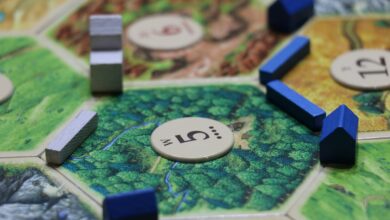Facing a Diverse and Hostile World: Strategy Games and the Art of Conflict Resolution

Strategy games, whether they are traditional board games or digital simulations, often revolve around managing conflict and making strategic decisions. These games require players to analyze information, consider various perspectives, and strategize accordingly. By engaging in these activities, players inadvertently learn how to resolve conflicts and develop diplomatic and negotiation skills.
One of the significant advantages of strategy games is their ability to create a safe environment for experimentation and learning. Players can make choices, face the consequences, and learn from their mistakes without real-life repercussions. This freedom to explore different strategies and outcomes encourages a deeper understanding of the conflict resolution process. With each successful negotiation or diplomatic move made within the game, players gain confidence and enhance their problem-solving abilities.
Furthermore, strategy games provide a unique opportunity for players to immerse themselves in diverse and challenging scenarios. They offer a simulation of the complexities and nuances present in real-life conflicts, including different cultures, ideologies, and motivations. By facing diverse scenarios, players learn to embrace diversity, overcome biases, and develop empathy towards people from different backgrounds.
Crucially, strategy games also teach players that conflict resolution is not just about winning or dominating the opposition. Rather, it emphasizes the importance of finding mutually beneficial outcomes and avoiding unnecessary confrontations. Players quickly realize that pure aggression and conflict often lead to failure and detrimental consequences. Instead, they learn to approach conflicts with a focus on collaboration, compromise, and understanding. These skills are invaluable in the real world, where resolving conflicts requires empathy, effective communication, and a genuine desire for peaceful outcomes.
Moreover, strategy games can instill in players a sense of patience and long-term thinking. Successful conflict resolution often requires time, open-mindedness, and a willingness to explore alternatives. Strategy games promote critical thinking, strategic planning, and the ability to anticipate and analyze the consequences of various actions. These skills are transferable to real-life situations, where complex conflicts cannot be resolved hastily and demand thoughtful consideration.
Lastly, strategy games provide a competitive yet entertaining platform for players to engage with conflict resolution concepts. They offer an engaging and enjoyable way to develop these skills, making the learning process more enjoyable and memorable. As players work towards resolving conflicts within the game, they not only enhance their conflict resolution abilities but also experience the satisfaction of achieving successful outcomes, further reinforcing these skills.
In conclusion, strategy games can play a significant role in teaching individuals how to face a diverse and hostile world by developing conflict resolution skills. These games provide a safe environment for experimentation, encourage empathy towards diverse perspectives, and promote collaboration and mutual understanding. As our world continues to face complex conflicts, developing these skills will become essential for fostering peace and cooperation. So why not pick up a strategy game and embark on a journey to become a master of conflict resolution?





